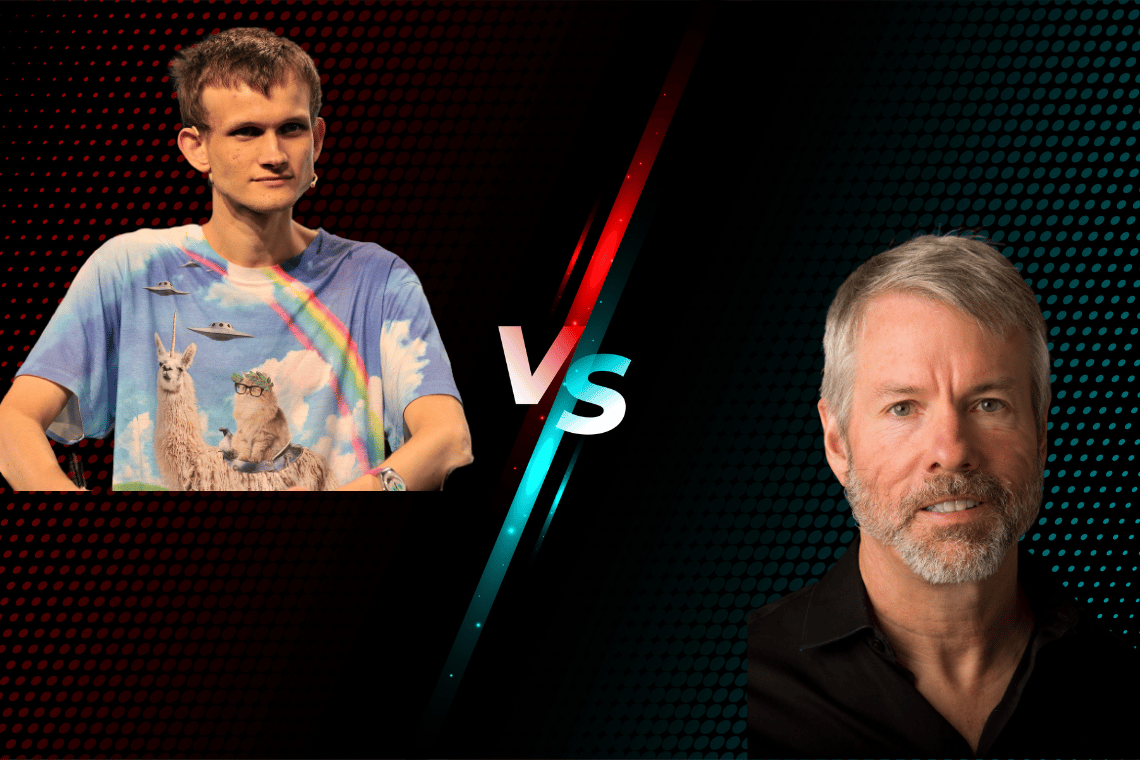In a rather polemical tweet, Vitalik Buterin, the founder of Ethereum has once again entered into controversy with Bitcoin maximalists and in particular with what is perhaps considered the leading exponent of this movement, the CEO of Microstrategy Michael Saylor.
Why do maximalists keep picking heroes that turn out to be total clowns? https://t.co/lVhEVbfBbD
— vitalik.eth (@VitalikButerin) July 31, 2022
It all allegedly stemmed from criticism by Saylor directed at the blockchain founded by Buterin, allegedly calling Ethereum unethical during an interview.
Speaking of securities law, Microstrategy CEO Saylor explained how securities laws lay their foundation in the so-called Decalogue, a set of biblical principles related to ethics and worship.
“The basis of securities laws is thou shall not lie, cheat or steal. That’s the basis of the law. That’s the basis of the law”,
Saylor said.
This is why Saylor would regard Ethereum as inherently unethical.
Noted cypherpunk Michael Saylor on why Ethereum is inherently unethical because its existence violates securities laws which have their basis in the 10 commandments:
(h/t @adjtewck)https://t.co/GzhTGnPfK8— Daniel "peq umop" Goldman (@DZack23) July 30, 2022
Someone pointed out how in 2000 Saylor himself was convicted of a violation of those very laws that he now defends to the hilt.
Microstrategy’s problems in the bear market
Saylor, who is most likely in great difficulty because of Bitcoin‘s large losses, with some rumors suggesting that it is causing $1 billion in losses to his fund, is increasingly trying to plead the cause of Bitcoin as the only pure cryptocurrency on the market.
In April, Buterin had written a lengthy post on his personal website specifically to comment on the so-called “Bitcoin maximalists”, a definition some say he coined, and their ideas about the blockchain of cryptocurrencies.
“Many people of the “blockchain, not Bitcoin” persuasion argue that cryptocurrency is the first application of blockchains, but it’s a very boring one, and the true potential of blockchains lies in bigger and more exciting things”,
Buterin had written.
According to Buterin, Bitcoin is a purposely simple application, and therefore not capable of having any application other than as a store of value, specifically to prevent anything from going wrong, implying that his blockchain is much more complex and innovative.
“Bitcoin really really values being simple, and particularly having low technical complexity, to reduce the chance that something will go wrong. As a result, it doesn’t want to add the more complicated features and opcodes that are necessary to be able to support more complicated smart contracts in Ethereum”.
Saylor, on the other hand, having nearly 130,000 Bitcoin worth nearly $4 billion in his portfolio, the last of which he purchased in late June, may by now feel almost compelled to defend BTC head-on.
During his lengthy video in which he called Ethereum a scam, Saylor also spelled out what Bitcoin represents to him for the cryptocurrency industry.
“And as you can tell, I think Bitcoin is economically, technically, and ethically sound. You’ve got a million reasons why. We could talk about it for thousands of hours. And the simple thing to do is just use Bitcoin as your token and then build on top of that monetary protocol and on top of that monetary asset, but if you’re not going to do that, you definitely have to think long and hard about the economic, ethical, and technical implications of what you’re doing”.
On Ethereum, Saylor has also previously expressed his doubts about its continued need for new updates, such as the Merge planned for 19 September.
“Technically sound’ means I need to see the protocol function for that thing after about five to 10 years. So we don’t know that, either. Right? Because if you are hard forking and changing it, every time you do a big upgrade, you introduce new attack surfaces”.




